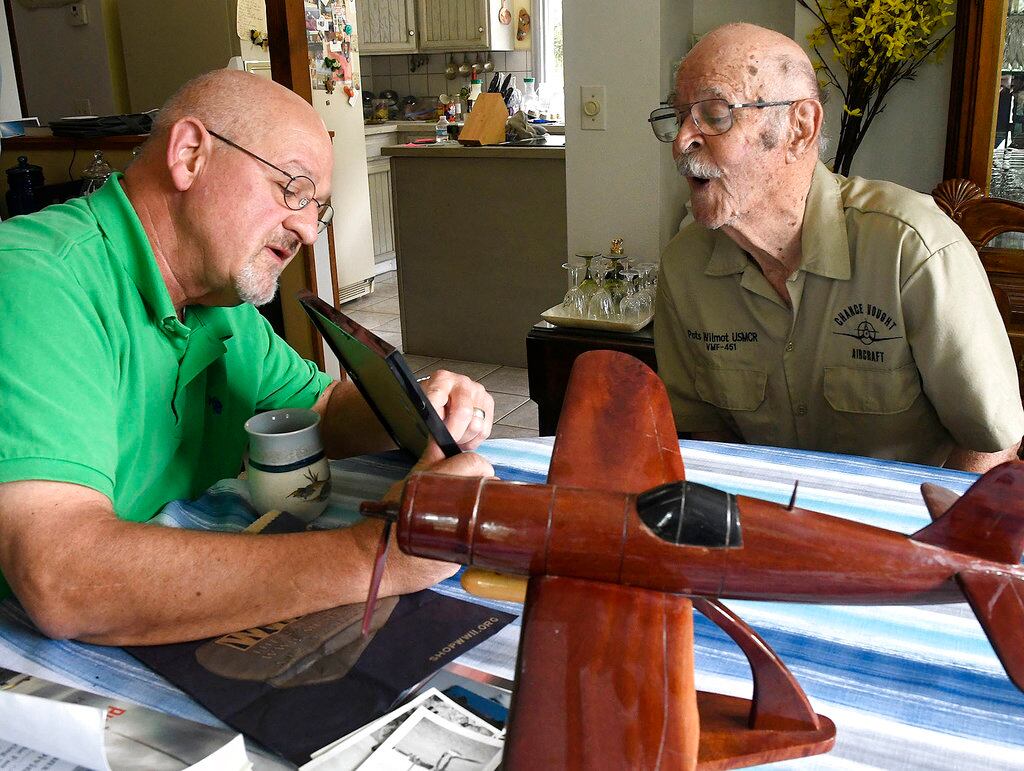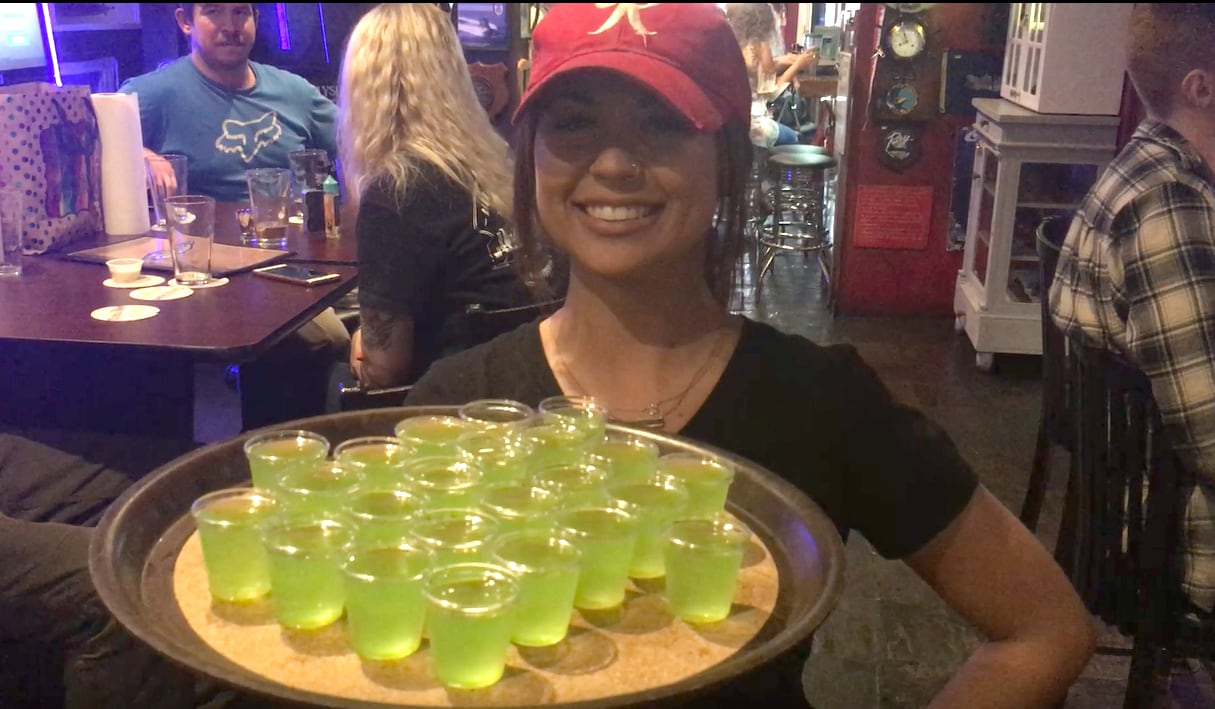DAVISVILLE, W.Va. — Two letters in Reader’s Digest led to a meeting between a Wood County man and a Tennessee woman whose fathers survived Japanese attacks against the aircraft carrier USS Bunker Hill during World War II.
Joe Duckworth of Davisville read a submission to "Humor in Uniform" in the June issue of Reader's Digest that caught his attention.
The article told the story of a serviceman on an anti-aircraft cruiser who had accidentally shot down an unmanned drone target at gunnery practice during World War II.
Duckworth said the story reminded him of a story his father, Clyde, had told him about a drone being shot down during the war.
Duckworth shared his father's story in the September 2018 issue of Reader's Digest.
Geanie Varney of Knoxville, Tenn., contacted Duckworth after reading his letter in Reader's Digest about the drone incident during the war.
Varney told Duckworth that her father, Eugene Brown, had told her about a sailor he had served with on the USS Bunker Hill who had accidentally shot the tow line off the drone, sending the unmanned glider into the Pacific Ocean.
Duckworth told Varney that his father, Clyde Duckworth, was the sailor who accidentally shot down the drone that day during gunnery practice.
"Her father was there when my father shot the drone down," Duckworth said.
RELATED

Duckworth and Varney decided to meet in West Virginia to discuss their fathers' military service on the USS Bunker Hill. Varney has a daughter living in Scott Depot, W.Va.
Duckworth and his wife, Patricia, met with Varney at the Cracker Barrel in Cross Lanes, W.Va., on Aug. 29 to share their fathers' war stories. Clyde Duckworth of Mineral Wells died on July 4, 1995. Varney’s father, who grew up in Texas, died in 1970 at the age of 47.
The two families have no evidence that Duckworth and Brown knew each other on the ship. But they may have had similar work duties on the ship, Varney said.
Varney said it was a "wild coincidence" that she saw Duckworth's letter in Reader's Digest.
“I don’t read Reader’s Digest often . . . I was thumbing through it,” when she saw the mention of the USS Bunker Hill, CVS-17, the ship her father served on.
"It's a small world," she said.
Varney said it was nice talking to the Duckworths, adding it was like they had known each other for years.
Eugene Brown, Varney’s father, was the lone survivor of 22 men in a ship compartment, below deck, after two Japanese kamikaze airplanes hit the USS Bunker Hill, which was supporting the Okinawa invasion, on May 11, 1945, in the Pacific Ocean.
A total of 390 U.S. sailors were killed and 264 were injured in the kamikaze attacks.
The Bunker Hill was 876-feet long, 148-feet wide, carried 90-100 aircraft and had about 2,800 crew members.
The ship was named for the famous American Revolutionary War battle.
Clyde Duckworth wouldn't talk about the attacks after the war, his son said. "He would talk about the funny stuff on the ship," Joe Duckworth said.
Clyde returned home from the war in 1946.
Brown was traumatized by the death and destruction he witnessed on the USS Bunker Hill on May 11,1945, his daughter said. “Dad was on the body recovery out of the air shaft,” she said. “It was terrible, terrible. He had nightmares” after the war.
Varney said her father suffered a nervous breakdown in late 1945.
It was a miracle that her father survived the kamikaze attacks, Varney said, adding she can understand how he felt after the war.
A disabled USS Bunker Hill “limped back” to Bremerton, Wash., for repairs after the kamikaze attacks. The aircraft carrier was later used to transport the troops back to the United States after the war, Joe Duckworth said.
RELATED

The Bunker Hill was later junked for scrap, Varney said.
Clyde Duckworth was proud of his service in the U.S. Navy, his son said.
"Dad was a patriot. He was a farm boy who went into the Navy to fight for his country," Joe Duckworth said.
After the war, Clyde would dress like he was still serving in the Navy. "Dad never left the Navy in a lot of ways," Joe said.
Clyde wore a chambray shirt with a T-shirt, quartermaster Navy black oxford shoes and a cotton webbing belt.
In June 1993, Joe and Patricia purchased a cap with the lettering USS Bunker Hill CVS 17 on the front from a store in Newport News, Va. Clyde was happy to get the cap and wore it all the time.
The Bunker Hill cap was placed in Clyde's right hand in his casket.
Shortly before Clyde's death, Joe obtained a U.S. flag that had flown over an aircraft carrier.
"Dad grinned when I showed him the flag and said 'thank you,'" Joe said. "He hugged the flag."
This aircraft carrier flag was draped over Clyde's casket during his funeral service.
Afterward the flag was neatly folded and given to Joe's mother, who gave him the flag.
Joe Duckworth still has the U.S. flag that meant so much to his father.





